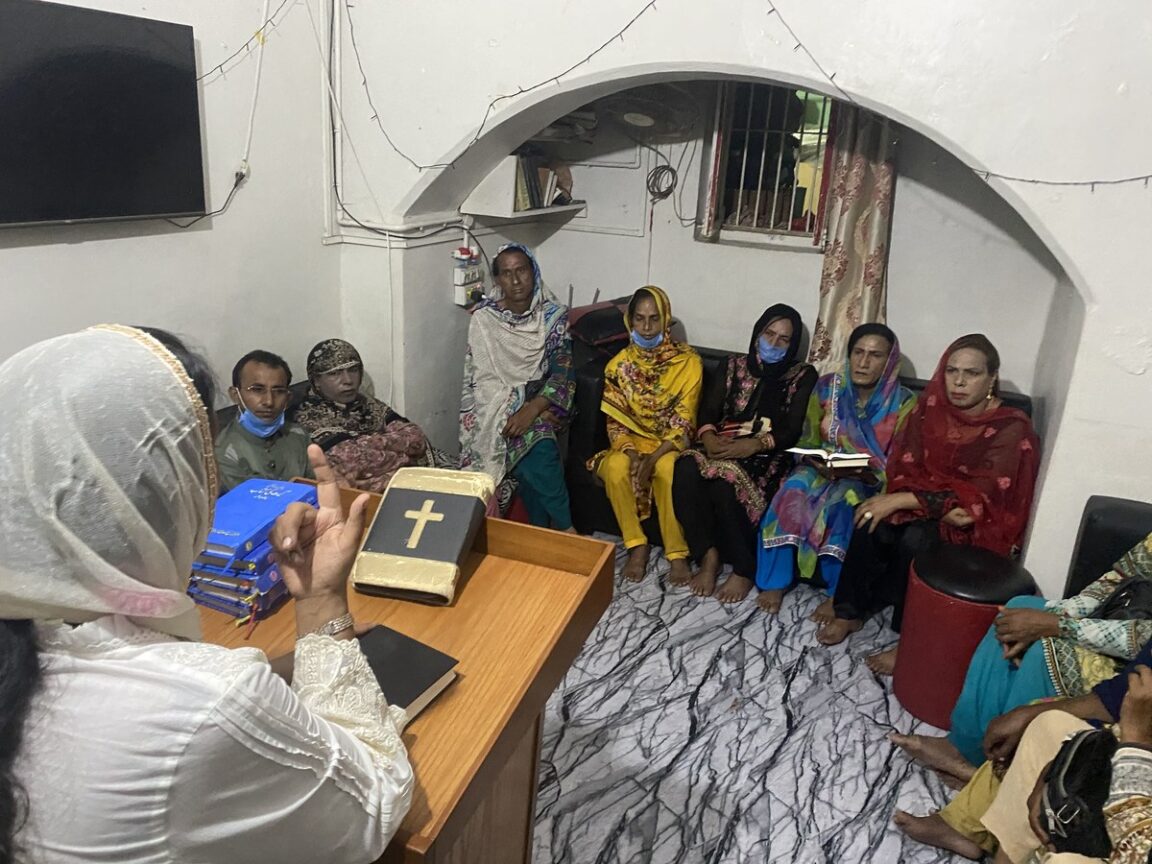Discrimination against the transgender community is no hidden secret in Pakistan. It’s all the more upsetting when such discrimination is seen in places of religious worship. But in a first for Pakistan, Karachi’s transgender Christian community has now gotten a church of their own to pray in safety.
Pastor Ghazala Shafiq invited community members to her home, where she has dedicated a small corner to church services.
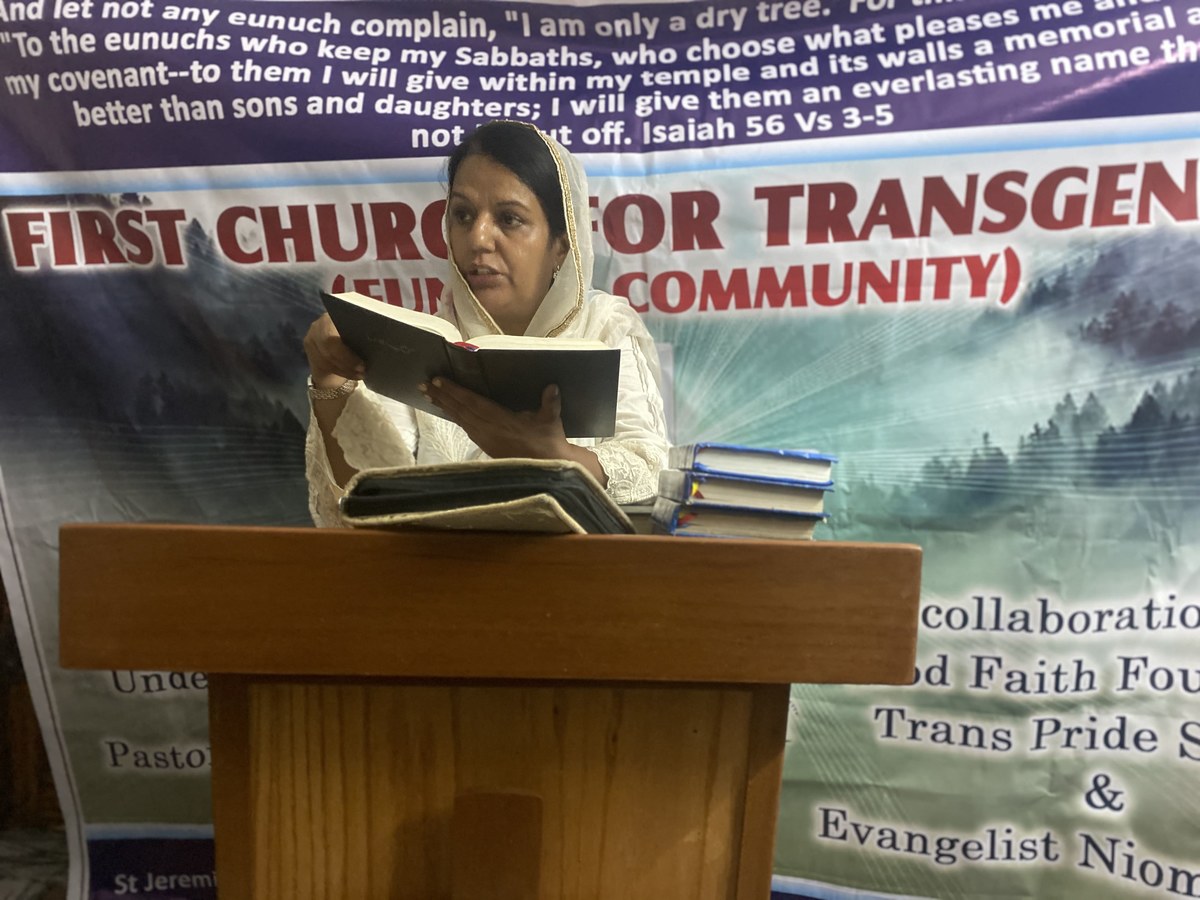
The small church center was inaugurated on August 14, Pakistan’s Independence Day. Pastor Shafiq wanted to give the community a place to pray and worship without worrying about harassment or restrictions.
Many transgender community members were previously forbidden from entering churches or touching the Bible.
“No one was willing to pay heed to their problems, though they opened up to me and shared their stories,” the pastor said.
According to the 2017 census, the country has 10,418 transgender people, out of which 24 percent— or 2,527— live in the southern province of Sindh. A number of them who are Christians is unknown, though Shafiq says that around 2,000 transgender Christians live in Karachi.
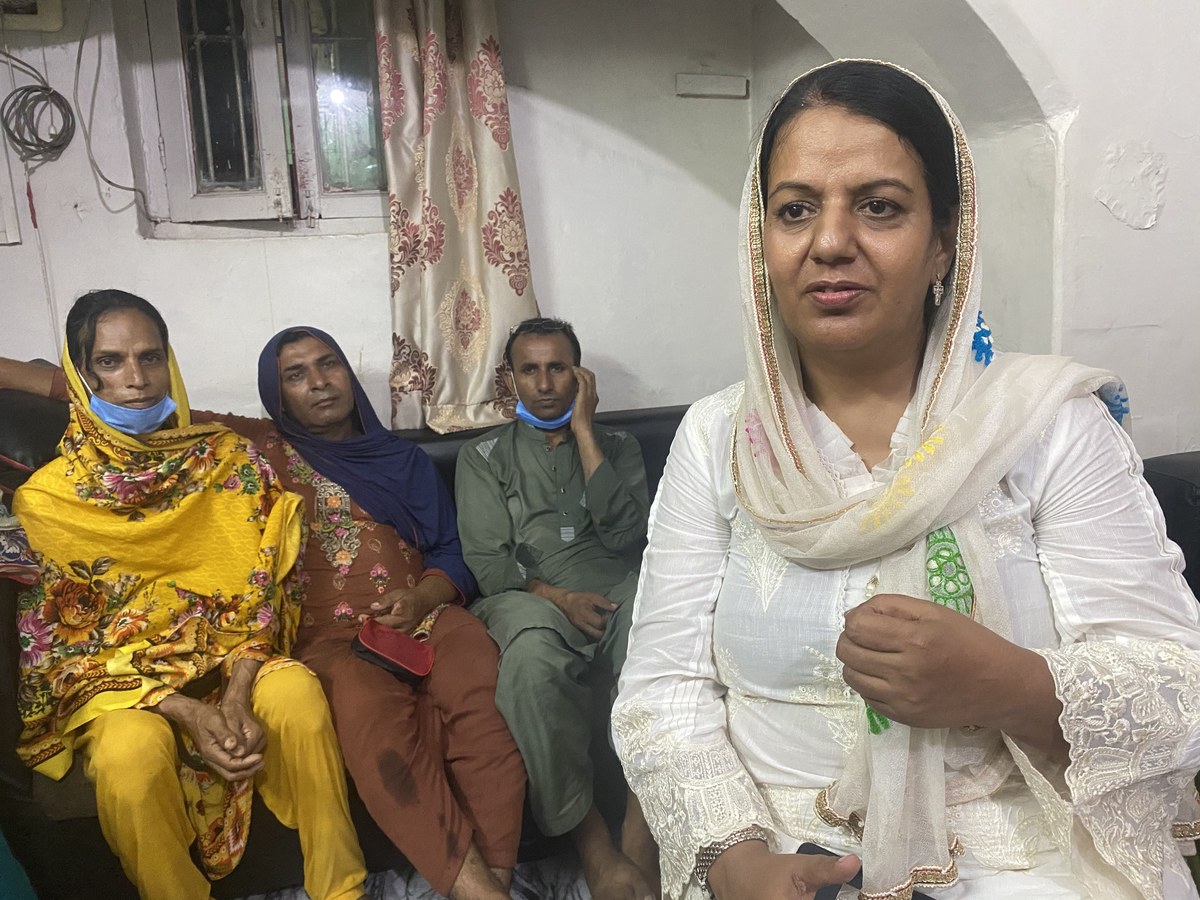
Last Friday, about 30 of them visited Shafiq’s makeshift church to perform their religious rituals.
“It’s like a dream come true. I can actually hold the Bible,” 40-year-old Nasira Gill, who attended the service, told Arab News while holding the holy book in her hands.
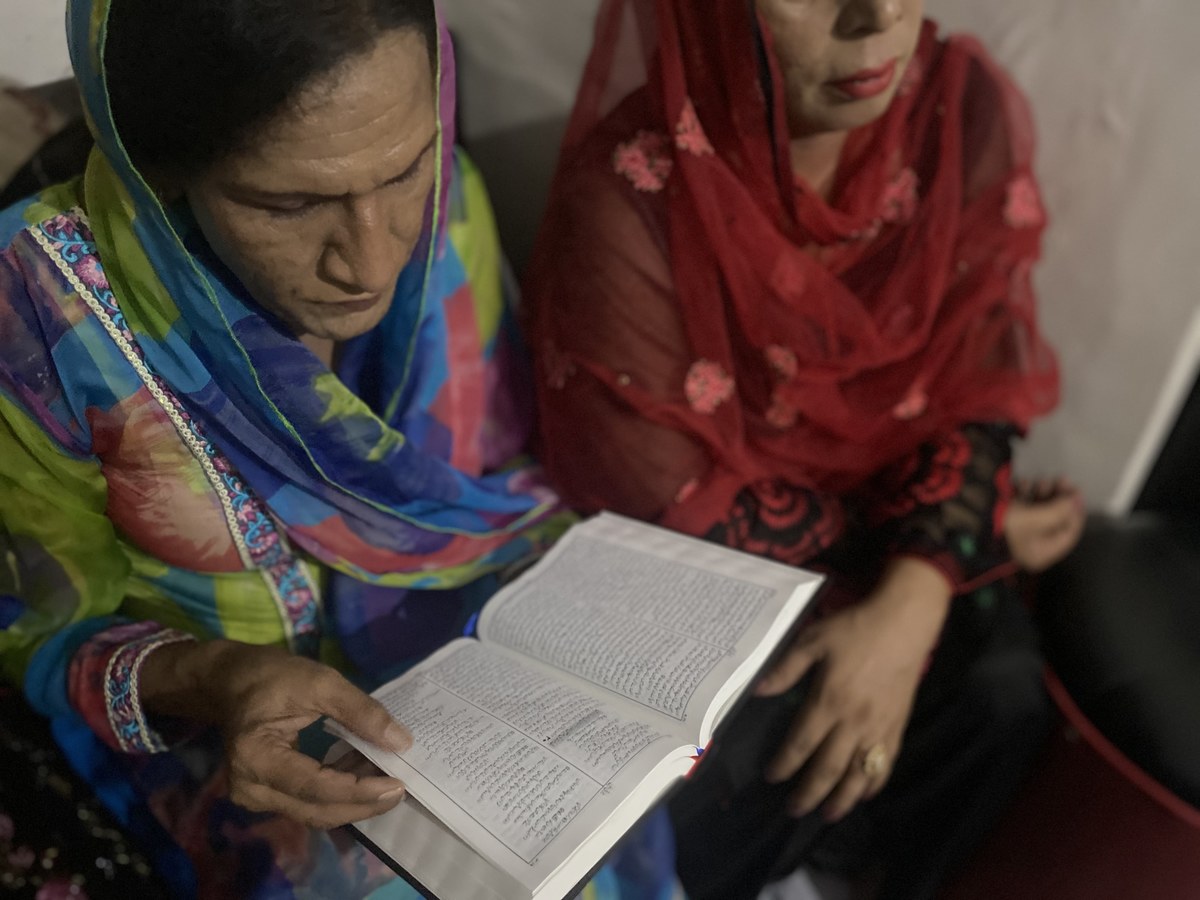
“No one ever came to our rescue before, neither our parents nor any church,” she complained, adding that she was always inclined toward religion but had to sit on the backbenches whenever she visited a church to avoid harassment.
“People looked at us as if we had committed a crime,” she said.
“Everyone tried to tell us the right way of following our faith. Some of them insisted that we were women and must cover our heads with a shawl while others believed that we were men and should pray bareheaded.”
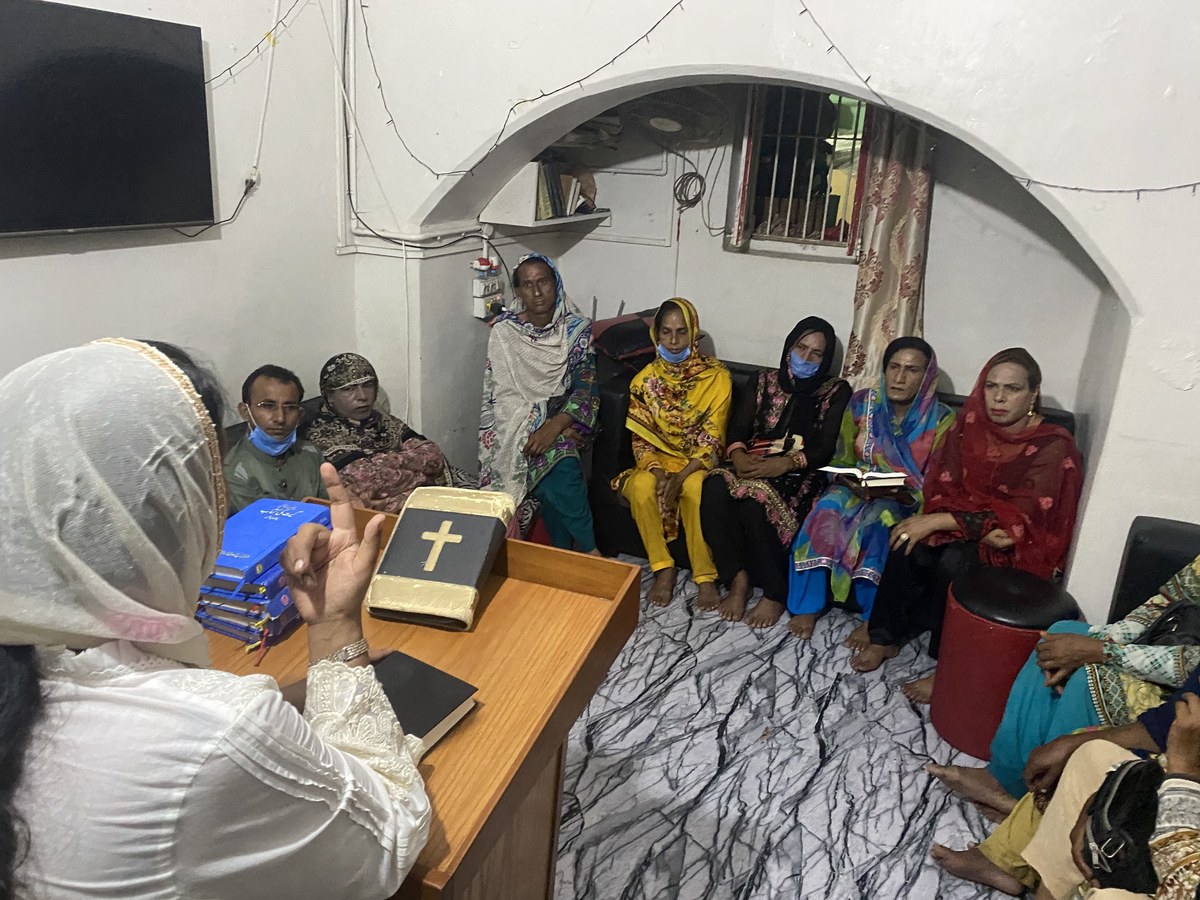
Another transgender woman, Bushra said the discriminatory attitudes many of them faced had continued to push them away from places of worship. Discrimination in places of prayer is just one of the many ways in which the transgender community is continually ostracized and kept away from assimilating into society.
“People had problems with where we sat,” she told Arab News. “Traditionally, there are separate rows for men and women in Pakistani churches. That leaves us with no space of our own since people kept objecting on why we were occupying one row or another.”
“Some people believed that transgender persons were dirty and should not touch the scripture,” Shafiq said. “This is despite the fact that Christianity gives them equal rights to pray in churches. God has made a special place for them and they are part of our society. We have to deal with them like our other children.”
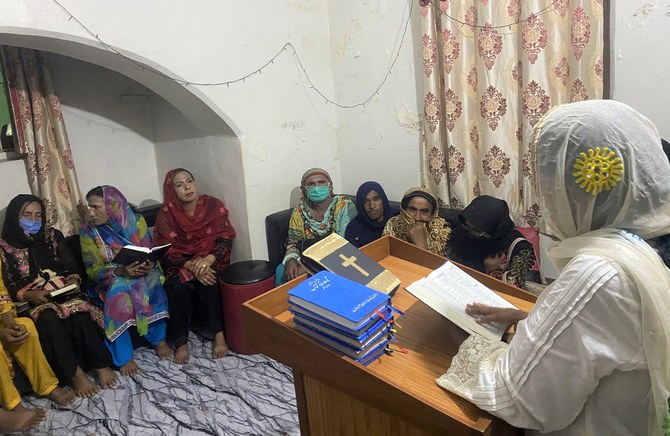
Shafiq said that all these issues made her realize that transgender Christians deserved a church of their own.
ALSO READ
Transgender Hero Leads Fight Against Covid In New Animated Pakistani Film
“Many people have applauded the initiative,” she said about the church she has opened in her home. “However, there were others, including Christians of Pakistani origin who live in the United States and Britain, who called my husband and asked him to stop me from taking this initiative. Some of them dismissively said that I was setting up a church for ‘hijras’ [a derogatory slur for transgender people].”
Shafiq now says she is raising funds to construct a proper church building for the transgender community.
“I love reciting the Bible,” said Arzo, who only uses her first name. “Unfortunately, I had to suppress the urge for many years. Things are different now and I can pray to God without being mocked or judged by anyone.”
Given their struggles, it is indeed heartening that this community of transgender Christians have carved out a safe space for their own.
via Arab News



